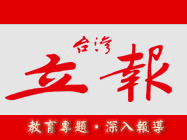台 灣 立 報 《 教 育 專 題 深 入 報 導 》 2013-03-28─立報—教育專題深入報導─智邦公益電子報
enews.url.com.tw · April 04,2014台 灣 立 報 《 教 育 專 題 深 入 報 導 》 2013-03-28
| ────────全 國 唯 一 教 育 專 業 報─────── |
| 台 灣 立 報 《 教 育 專 題 深 入 報 導》 2013-03-28 |
| 網址:http://www.lihpao.com/ |
| ★ ★ 本期目錄 ★ ★ |
| 國家專利戰:被指控侵權 有政府作靠山 | 本報訊 |
策劃、編譯■李威撰 專利競爭一直是美國私人企業之間的激烈較量場域;如今,南韓與法國政府也加入戰局。兩國都成立專利收購公司,旨在提供協助給國內科技業者,同時也希望從中賺取金錢。緊追在後的還有中國與日本。 南韓的「南韓發明基金」與法國的「法國專利」,類似美國某些被戲稱為「專利流氓」的專利收購公司。在美國,不事生產、未公開發行公司「高智發明」等專利聚合公司,常被指控不公地鎖定某些公司,他們的唯一功能就是要求這些公司支付權利金,否則就威脅提告。 這些專利聚合公司表示,他們替有價的智慧財產創造更具流動性的市場,並協助確保合法的發明者(尤其是那些不是替大公司效力的人)能憑自己的突破性發明得到報償。 國家撐腰的智慧財產權業者浮現檯面,在專利流氓與如何保護合法發明而又不會扼殺創意的相關爭論之中,增添了新的地緣政治因素。改善全球企業在網路盜版與電腦安全等貿易相關事務的行動上,也變得更加複雜。 由政府支持的聚合公司,在專利業者的市場上,仍是規模相對較小的行為者。南韓發明基金與法國專利的官員皆表示,他們無意掀起積極的訴訟策略。 南韓發明基金將自己定位為防禦聯盟:舉例來說,若南韓公司發現自己成為侵權訴訟的被告時,它能透過南韓發明基金所蒐集的專利來進行反擊。 「目前還在發展階段,大部分重心放在知識產權的累積。」南韓知識經濟部的副主任朴正弼在提到南韓發明基金時表示:「現在還沒達到賺取巨額收益、指認侵犯我們專利的對象,或採取法律行動的階段。」 據美國政府的紀錄指出,南韓發明基金已購買美國2百多項專利,包括去年7月從新加坡晶片公司安華高科技買來的視網膜掃描技術。 有跡象顯示,該公司的策略不僅限於幫助自己的國內企業,南韓發明基金還將專利賣給忙於開發「谷歌眼鏡」產品的谷歌公司。一名熟知交易內情的消息人士指出,南韓發明基金開價不到10萬美元。南韓發明基金與谷歌皆不願交代細節。 ▲參加紐約時尚週的谷歌創辦人布林(Sergey Brin)戴上谷歌眼鏡,圖攝於2012年9月9日。(圖文/路透) 法國專利這邊,副總裁狄特里奇與美方的紀錄都指出,該公司在美國只擁有4項專利與總共50項的「專利家族」。狄特里奇不願透露全球共有多少專利。 狄特里奇表示,公司的目標是投資優質的知識產權,讓法國企業能更好地將自身身科技轉化為財富。狄特里奇告訴《路透》:「我們不是在玩搶錢的把戲。」 像是高智發明(由微軟公司前技術長麥爾弗德所創辦)等大型玩家表示,他們保護新創公司及獨立發明者免於被竊取,並創造市場所必需的創新。據法庭文件顯示,包括微軟及谷歌在內等幾家科技公司,以及大學與基金會等等,都是高智發明的投資者。 目前為止,政府支持的專利聚合公司,規模還遠不及高智發明。該公司宣稱擁有超過50億美元的承諾資本及大約7萬筆的智財權。 法國專利創辦於2011年,資本額1億歐元,一半來自政府,一半來自法國信託局。法國專利的授權部主任阿塞勒表示,他們透過購買國內外業者的智財權來集中專利池。法國專利的目標是說服其他公司簽署授權交易以及支付權利金。阿塞勒表示,若法國專利創造出穩健的收益流,希望可吸引到穩定的私人投資。 南韓政府出資1億4千萬、成立於2010年的南韓發明基金,其成立背景是政府擔心國內企業會喪失重要專利,而這些專利會被外國公司拿來對付自己。 三星與樂金等知名南韓電子公司,都簽署成為「股東」。他們提供南韓發明基金額外收益,但也換取到專利組合的授權。 南韓發明基金總經理金光南將該公司與總部位在舊金山的RPX公司相比,後者獲取專利是為了保護成員而非為了興訟。 世界各國渴望加強自己在專利上的實力,政府與民間合力投資的日本產業革新機構成立於2010年,欲獲取及授權生命科學方面的專利。 同時,根據中國大陸負責智財事務的政府單位所公布的2013年策略計畫,中國計畫成立20個智財「投資服務平台」,同時考察政府、業界與大學三方聯合的資助模式,並擴大專利保險的試行計畫。 從文件上,難以判斷這些計畫是否與南韓及法國的計畫類似,政府官員也沒有回應記者的評論要求。 台灣工研院北美公司代表王韶華透過電子郵件告訴《路透》,工研院成立了一家「智慧財產服務公司」,但政府沒有出資。王韶華未回應後續的提問。 史丹佛法學院教授藍姆利表示,判斷這些新玩家的最終方式是看他們把目標放在誰身上。藍姆利表示,若南韓發明基金只將專利用來對付那些已經先控告韓國企業的公司,則南韓發明基金單純只是南韓貿易政策的延伸。 不過,他們可能會把任何人都當作是可攻擊的對象。「看起來,這更像是這些外國政府想要在過去10年勃興的商業模式中參一腳。」藍姆利說:「也就是專利流氓的模式。」(路透) Patent competition in the United States is usually a fierce arena for private companies, but now the South Korean and French governments are suiting up. Both countries have launched patent-acquisition companies, with the goal of helping domestic technology firms and possibly making some money in the process. China and Japan are making moves into the business too. The Korean and French firms, dubbed Intellectual Discovery and France Brevets, are similar to the handful of private patent-acquisition firms in the U.S. derisively called "patent trolls(1)." U.S. patent aggregators such as closely-held Intellectual Ventures - which don't produce products - are often accused of unfairly targeting companies that actually build things by threatening to sue unless they are paid royalties. The aggregators say they create a more-liquid market for valuable intellectualproperty(2), and help assure that legitimate inventors - especially those who don't work for big corporations - get paid for their breakthroughs. The advent of state-sponsored intellectual property dealers adds a fresh geopolitical element to the debate about patent trolls and how to protect legitimate inventions without stifling innovation. It could also complicate efforts to improve global cooperation on trade-related matters such as online piracy and computer security. Government-sponsored aggregators are still comparatively minor players in the patent deals market, and officials involved with Intellectual Discovery and France Brevets say they have no intention of pursuing aggressivelitigation(3)strategies. Intellectual Discovery presents itself as a defensive alliance: if a South Korean company finds itself targeted in a lawsuit, for instance, it can access the patents being compiled by Intellectual Discovery to hit back. "It is still in an incubating stage and focusing pretty much on aggregating IP," said Park Jong-Pil, deputy director at South Korea's Ministry of Knowledge Economy, in reference to Intellectual Discovery. "It is not close to a stage of earning big revenues or identifying entities violating our patents or taking legal action." Intellectual Discovery has bought over 200 U.S. patents, including one for retinal eye scan technology from Singaporean chipmaker Avago Technologies Ltd last July, U.S. government records show. And in a sign that its strategy is not limited to aiding Korean companies, it sold that patent to Google Inc, which is busy developing its Google Glass product. A source familiar with the deal said the price was less than $100,000. Intellectual Discovery and Google declined to discuss the details. France Brevets, for its part, owns only four patents in the United States and 50 total patent "families," according to vice president Yann Dietrich and U.S. patent records. He didn't disclose the total number of patents worldwide. Dietrich said the goal was investing in quality IP so French companies can better monetize(4) their technology. "We are not playing with the rules to extract money," Dietrich told Reuters. Big players such as Intellectual Ventures, launched by former Microsoft chief technology officer Nathan Myhrvold, say they prevent upstart companies and independent inventors from being ripped off and create a much-needed market for innovation. Several tech companies, including Microsoft Corp and Google, as well as universities and foundations, are investors in Intellectual Ventures, according to court filings. So far, the government-backed aggregators don't have nearly the same scale as Intellectual Ventures, which says it has over $5 billion in committed capital and owns roughly 70,000 IP assets. France Brevets was launched in 2011 with 100 million euros, half from the state and half from the Caisse des Depots. Pascal Asselot, licensing director for France Brevets, said that by assembling patent pools with intellectual property bought from French and foreign businesses, France Brevets aims to convince other companies to sign licensing deals and pay royalties(5). If France Brevets can show a healthy revenue stream, the hope is to attract sustainable private investment, Asselot said. Korea's Intellectual Discovery, which was started in 2010 amid government fears that domestic companies were losing key patents that could be used against them by foreign companies, has a $140 million government commitment. Prominent South Korean companies like Samsung Electronics Co Ltd and LG Electronics have signed up as "shareholders," providing Intellectual Discovery with additional revenue in exchange for a license to its patent portfolio. Intellectual Discovery chief general manager Chant Kim compares the company to San Francisco-based RPX Corp, which acquires patents to protect its members but doesn't initiate lawsuits. Countries around the world are eager to strengthen their patent punch. The Innovation Network Corp of Japan, a joint public-private investment company, launched a fund in 2010 to acquire and license life sciences patents. China, meanwhile, has plans to set up around 20 IP "investment service platforms," along with exploring a joint government-industry-university patent funding model and extending pilot programs for patent insurance, according to a 2013 strategy plan from the state intellectual property office. It's unclear from the document whether any of these programs will be similar to South Korea and France, and government officials did not respond to requests for comment. Taiwan's national research lab set up an "IP service company" but it is not government funded, said Sean Wang, a representative for the lab in the United States in an email to Reuters. He did not respond to follow-up questions. Stanford Law School professor Mark Lemley said the ultimate method of judging these new players will be who they target. If Intellectual Discovery only uses its patents against companies who already sued Korean businesses then the company is a simple extension of Korean trade policy, Lemley said. However, they might decide everyone is fair game. "It really does look more like an effort by these foreign governments to get in on the boom business model of the last decade," Lemley said, "which is patent trolling."(Reuters) 1.patent troll(n.)專利流氓、專利蟑螂 2.intellectual property(n.)智慧財產 3.litigation(n.)訴訟 4.monetize(v.)變現 5.royalty(n.)權利金 一般常見的專利訴訟,主要是科技公司控告科技公司(如蘋果控告三星);但愈來愈多被告者所面對的,是本身不從事生產的「專利流氓」。 ▲雪梨的行人拿三星手機拍攝蘋果商店,圖攝於2012年9月21日。(圖文/路透) 專利流氓的正式名稱是「專利授權公司」(Non-Practicing Entities),簡稱NPEs。NPEs可以是個人或大學等團體,但主要是以公司企業的型態出現。NPEs存在的功能是購買專利與執行專利。 NPEs最常被批評的,是短線操作的投機行為,對業者(主要為科技業)造成不小經濟損失。根據波士頓大學2012年的調查,NPEs於2011年在美國發起的專利訴訟,對公司企業造成共290億美元的直接損失。因此,NPEs是否有助激勵創新備受質疑。 批評者指出,NPEs仰仗某些屬於自己專利範圍的問題專利(questionable patent,即專利有效性有待釐清)或具有品質爭議的專利,指控其他業者侵權,並威脅以提告方式來執行專利。 接著,NPEs向對方尋求庭外和解,被指控的業者為了避免高昂法庭支出,很可能同意支付遠低於法庭費用的和解金。 其餘爭議,還包括和解金的分配問題。NPEs被批評,將獲得的大筆和解金放入自己口袋,僅撥其中一小部分給原始發明者。另外,NPEs被批評是「科技業的寄生蟲」,他們不是真正的發明者,只是將專利授權給其他人,藉其他生產者將專利技術商品化為產品,並在過程中賺取收入。 但NPEs的支持者認為,其存在具市場貢獻。首先,NPEs可將獲得的和解金用於研發之上。不過,因為絕大多數NPEs都是私人公司,外界不易知曉有多少和解金回饋至研發用途。 另外,NPEs雖不從事研發,也不從事生產,純粹只是販賣及兜售專利,卻扮演活絡市場的關鍵中介要角。NPEs向沒有資源、沒有能力從事生產的發明者購買專利,幫助發明者將創新變換成金錢報酬;同時,也幫助發明者聘請律師,降低專利訴訟的風險及不確定性。最後,NPEs不可一概而論,其商業模式有許多種,並非所有NPEs都把官司訴訟當作主要市場策略。 (綜合外電報導) 有鑒於NPEs大肆興訟,俄勒岡州的民主黨眾議員迪法索(Peter DeFazio)提出《保護高科技創新者免於惡意訴訟法案》(The Saving High-tech Innovators from Egregious Legal Disputes Act, SHIELD Act),希望改善NPEs濫興訴訟的問題。近幾年,專利戰的型態有所改變,美國2012年的所有專利訴訟,有6成是NPEs所提出。 ▲俄勒岡州的民主黨眾議員迪法索,圖攝於2011年8月1日。(圖文/路透) 根據德州大學奧斯汀分校與史丹佛大學所做的研究,NPEs提出的侵權指控,有9成達成私下和解,被指控的一方為弭平糾紛,願以數額較低的和解金來避開法律訴訟。 有趣的是,剩下1成由法庭負責仲裁的訴訟,NPEs常以敗訴收場。根據不同的報告指出,NPEs勝訴機率大約介於9%至24%。既然NPEs敗訴機率高,為何NPEs能生存至今?因為根據NPEs評估過後的商業模式,他們看準絕大多數的公司都不願走上傷財耗時的司法途徑。 目前,國會正在審查的這項法案。根據這項法案,NPEs只要敗訴就必須償付被告所有法律開支(被告經常要花費超過百萬美元),希望藉此遏阻NPEs動不動指控他人侵權的行為。不過也有部分律師反對立法,擔心「失敗者付費」的原則可能會擴及其他的侵權法規。 (綜合外電報導) |
|
| (回目錄) |
立報歡迎您投稿與指教。詳情請參投稿與聯絡立報 |
| 本電子報內容由台灣立報社提供 |
| 地址:台北縣新店市復興路43號 |
| 欲詳完整內容請訂閱立報 電話:02-86676655 傳真:02-82191213 訂報:02-86676655轉214 地址:台北縣新店市復興路43號1樓 每週一至週五出報,每份10元 |
| (回目錄) |














